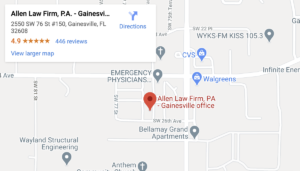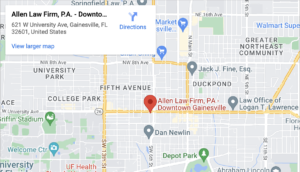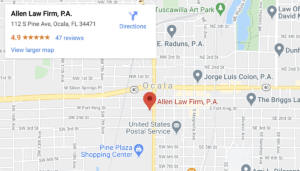
In a personal injury claim, subrogation occurs when your insurance company accepts your claim for damages but then takes over your right to claim against a third party (typically the at-fault party or their insurance company). This right includes the right to sue or to settle your claim since it is only your right to sue that gives you the leverage to pursue a settlement.
How Subrogation Works

If your insurance company sues the third party and wins, or wins a settlement, they will reimburse themselves for the amount they paid for your claim, and they will give the rest to you. One rationale behind subrogation is that you should not be able to receive double compensation by claiming against your insurance plus the at-fault party or their insurance company.
Subrogation ensures that your insurance company will obtain reimbursement.
It is not only insurance companies that seek subrogation – Governments do too. If Medicare or workers’ comp takes care of your medical expenses, for example, then they will probably seek reimbursement from the at-fault party or their insurance company.
Your Cooperation Is Required
Your insurance policy probably contains a clause that obligates you to cooperate with your insurance company’s subrogation efforts. They will probably send you a request for information designed to determine if you are likely to receive compensation from someone else — namely, the at-fault party or their insurance company.
They will ask questions designed to allow them to determine:
- Who was at fault for the accident; and
- Whether you plan to file a personal injury lawsuit or seek a settlement.
Your insurance company will notify you if it intends to pursue its subrogation interest.
Car Accident Claims
Subrogation applies to different kinds of personal injury claims. Filing a lawsuit over a car accident doesn’t happen as often in Florida as it does in many other states for two reasons:
- Florida is a “no-fault” auto insurance state. You can’t sue for a car accident injury, regardless of fault, unless you suffered a “serious injury.” Florida law defines the term “serious injury” very specifically.
- Florida drivers are not required to carry bodily injury liability insurance.
Because of this, subrogation only comes into play if the accident was someone else’s fault, you suffered a “serious injury”, and the at-fault driver carries liability insurance that could reimburse your insurance company.
Consequently, Florida’s most common subrogation claims require an insurer to provide uninsured or underinsured motorist benefits. Once the insurer has paid UM benefits, the insurer has the right to take the at-fault driver to court for the amount the insurer paid the accident victim.
The Terms of Subrogation
The insurance company’s choice to pursue subrogation places certain restrictions on the way you handle the claim. You may not, for example:
- Settle with the at-fault party without the permission of your insurance company; or
- Sign any waivers or any other document that would prevent your insurance company from receiving reimbursement.
If your insurance company receives reimbursement, you might receive part or all of any insurance deductible that you paid (depending on the terms of your policy).
“Waiver of Subrogation” Clauses in Settlement Agreements
The opposing party might try to slip a “waiver of settlement” clause into your settlement agreement if you settle your claim. This clause purports to prevent your health insurance company from seeking reimbursement from the opposing party.
If you sign it, your health insurance company might refuse to honor your claim. Have your lawyer read over your settlement agreement (or draft it themselves) and explain its implications.
Federal Health Insurance Provided by Your Employer
Normally, Florida subrogation law governs any subrogation issues you might encounter. If you participate in an ERISA health insurance plan provided by your employer, however, federal subrogation law applies. Although many similarities exist between Florida subrogation law and federal subrogation law, there are differences as well. Talk to your lawyer about any relevant legal issues if you have federal health insurance.
Similar Concept: Medical Liens
If your own insurance is not enough to cover your medical expenses, your healthcare provider might seek to take out a medical lien on any compensation you receive from a personal injury claim. If you win, your healthcare provider will demand reimbursement for the value of their medical services out of your compensation.
Of course, they will receive nothing from the opposing party if you lose your claim. Consequently, your healthcare provider might seek payment out of your personal assets.
A Personal Injury Lawyer Can Guide You Through the Claims Maze
Winning a personal injury claim can be a complex undertaking. It can also be difficult to evaluate the strength of your claim and determine its true value. An experienced personal injury attorney can help you with these matters. Almost any personal injury lawyer will offer you a free initial consultation and no legal fees unless they win.





